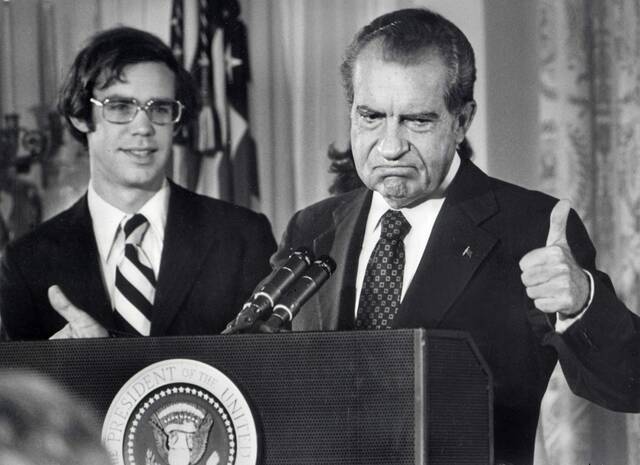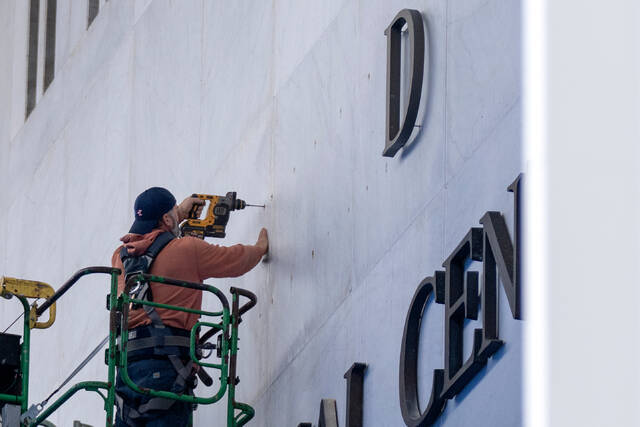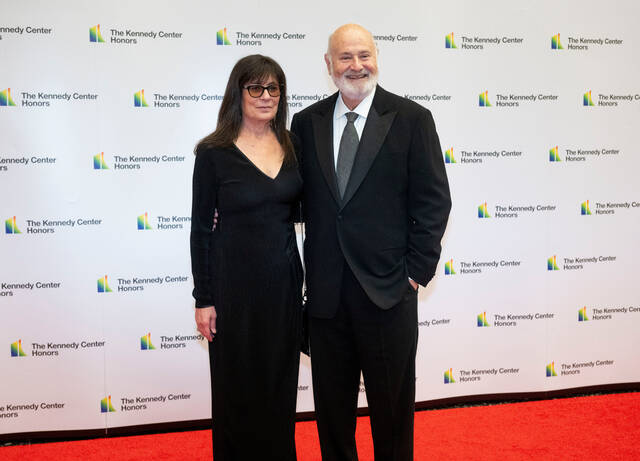When Sen. John Fetterman was given permission by Senate Majority Leader Chuck Schumer to wear his signature baggy shorts and hoodie on the floor of the Senate, some Republicans were predictably outraged by the break with tradition. Maybe that was the whole point.
Fetterman responded to their indignation with a vulgarity of the sort that is rarely heard and certainly not helpful in public discourse, something more commonly heard on the tough streets of Braddock, where I was born and where he once was mayor. But later, the farcical nature of this manufactured controversy was revealed when Fetterman offered the Republicans a deal.
“If those jagoffs in the House stop trying to shut our government down, and fully support Ukraine, then I will save democracy by wearing a suit on the Senate floor next week,” Fetterman said.
Fetterman’s fashion choices and street talk will surely be high-fived by those with contempt for government institutions. Donald Trump has ridden similarly coarse behavior to the White House once and could do it again, using insulting nicknames for his opponents and demeaning their intelligence.
We have come to expect these breaks with civility. Behavior that was once uncommon or even outrageous is now shrugged off, more easily ignored than challenged. In our institutions and also throughout our communities, the simple rules that once held us together no longer apply. Dysfunction has become the rule.
In 1993, Daniel Patrick Moynihan talked about “defining deviancy down,” in which once punishable behavior is redefined as acceptable. Bill Bratton, the former New York City Police commissioner, recently told MSNBC, “We are defining the norms of behavior down.”
Bratton’s time as New York City’s top cop in the early 1990s was marked by a substantial drop in crime. Bratton has his critics — policing is the toughest job in America and no chief is universally admired — but his “broken windows” approach to policing is getting another look.
“Broken windows” policing was proposed in 1982 by social scientists James Q. Wilson and George L. Kelling, who wrote, “One unrepaired broken window is a signal that no one cares, and so breaking more windows costs nothing.” Each transgression emboldens another and another.
At its core is the belief that when public order is lost, the community is headed in a dangerous direction. “Broken windows” policing requires police and government and citizens’ attention to what some progressive leaders believe to be minor crimes: vandalism, graffiti, littering, assaultive panhandling, shoplifting, drunkenness, littering, public urination and defecation, open drug dealing and drug use.
Together, at worst, these crimes tend to create a seed bed for more serious crimes. Short of that, they create an environment of fear and disinvestment in our communities, threatening the quality of life in all neighborhoods.
In Pittsburgh, Downtown looks bad and smells bad and is being abandoned by businesses that can no longer calm the fears of their employees and customers. In early September, Mayor Ed Gainey attributed an increase in Downtown crime to “cracks in the system.” He’s right, but the cracks run straight through the mayor’s office.
I am not sure how we can turn that around as long as our leaders ignore the “broken windows” in the city, those minor crimes that self-proclaimed progressives would have the police ignore. But, if our elected officials stop defining our “norms of behavior down,” that will be a start.








